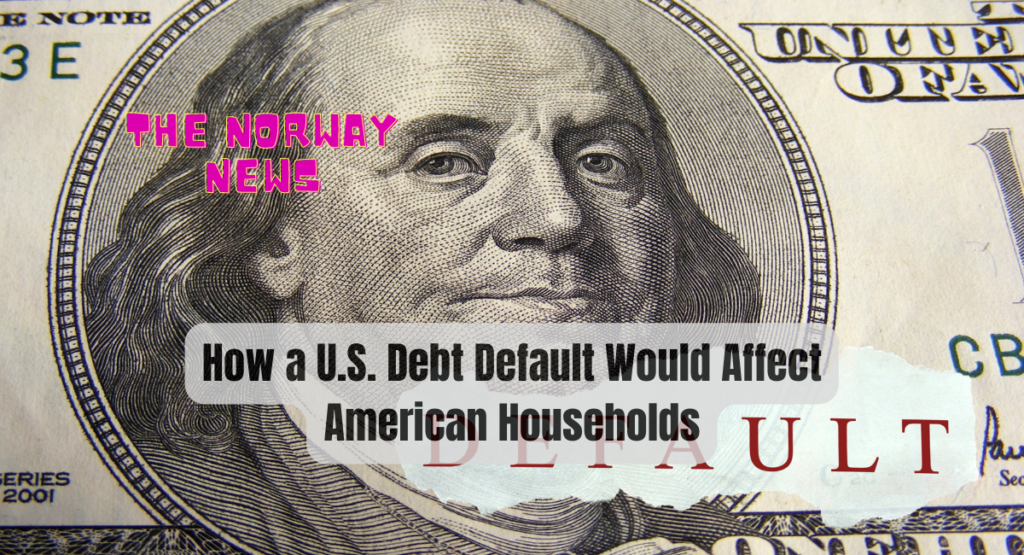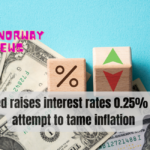Consider the possibility of the United States defaulting on its debt. The consequences of such an occurrence would ripple through the economy, affecting every American home. In this essay, we will look at the probable ramifications of a US debt default and how it would influence numerous elements of daily life. We will look at the various issues that people and families may encounter, such as rising interest rates, housing market swings, stock market volatility, and unemployment. Let’s get started.
Understanding U.S. Debt Default
Before looking into the possible consequences, it’s critical to understand what a US debt default involves. Simply put, a debt default happens when the United States fails to satisfy its financial responsibilities, such as paying bond interest or repaying maturing debt. The ability of the United States government to borrow money is critical for funding various activities and projects. Therefore, a debt default would have far-reaching effects if it occurred.
Impact on Interest Rates and Borrowing Costs
Rising Interest Rates
A US debt default would almost certainly increase interest rates. Investors lose faith in the stability of US Treasury bonds when the government defaults on its debt. As a result, to compensate for the increased risk, they demand higher interest rates. The increase in interest rates would have a cascading effect on borrowing costs throughout the economy.
Increased Borrowing Costs
Borrowing would become more expensive for individuals, families, and businesses if interest rates rose. This means that acquiring loans for mortgages, vehicle loans, or personal loans will result in increased interest payments. It could dissuade potential purchasers, lowering housing demand and harming the economy as a whole.
Effects on Housing Market and Mortgage Rates
Decline in Housing Prices
A US debt default would have a negative impact on the property market. Home prices may fall if interest rates rise and demand for homes falls. Homeowners may face diminishing home values, potentially resulting in unfavorable equity circumstances. Selling a home or refinancing a mortgage may become more complex.
Higher Mortgage Rates
Mortgage rates would climb in tandem with falling home prices. As a result, increased borrowing costs would be passed on to borrowers by lenders, making homeownership less accessible for many. In addition, existing homeowners with adjustable-rate mortgages may see their monthly payments rise when their rates reset. This confluence of issues may put an additional burden on the housing market and impede homeownership.
Stock Market Volatility and Retirement Savings
Stock Market Fluctuations
A US debt default would almost certainly cause stock market turbulence. Uncertainty and a loss of investor confidence can lead to market sell-offs and precipitous drops in stock prices. Individuals with a large stake in the stock market may suffer big losses, jeopardizing their retirement funds and long-term financial aspirations.
Retirement Savings at Risk
With stock market volatility, retirement savings such as 401(k)s, and IRAs may suffer significant losses. This might have serious consequences for people nearing retirement or who rely on their savings to sustain their post-work lives. Individuals may be forced to postpone retirement or change their retirement plans as a result of the potential loss of wealth and diminished retirement savings.
Impact on Consumer Spending and Inflation
Reduced Consumer Confidence
A U.S. debt default would most likely damage consumer confidence, which is critical to the economy’s health. Uncertainty over the country’s financial viability and the potential implications of default would cause people to be more frugal with their expenditures. Reduced consumer spending could harm firms, resulting in layoffs and additional economic instability.
Inflationary Pressures
Another risk in the aftermath of a debt default is inflation. As it struggles to pay its financial responsibilities, the government may resort to printing additional money to bridge the gap. This inflow of funds into the economy may result in inflationary pressures, reducing the currency’s purchasing power. Everyday expenses, such as groceries and electricity, could rise in price, putting further strain on people.
Employment and Job Market Consequences
Job Losses and Unemployment
A US debt default could have a negative impact on employment. Businesses that face economic uncertainty may reduce their activities, resulting in layoffs and job losses. Unemployment rates may grow as businesses manage financial issues and attempt to preserve viability in a volatile market. Finding new work may become more difficult if job prospects shrink.
Limited Job Opportunities
A debt default could also affect job development. Because of the uncertain economic situation, companies may postpone or halt hiring initiatives. Limited job possibilities may cause individuals to struggle to find work, aggravating financial challenges for American households.
Government Programs and Social Services
Reduced Funding for Social Programs
A US debt default would almost certainly mean fewer government programs and social services funding. As the government faces fiscal restrictions, it may reduce investment in healthcare, education, and infrastructure. This cut in funding may restrict access to critical services and support systems for individuals and families in need.
Strained Safety Nets
Government safety nets, such as unemployment benefits and welfare programs, may also be put under strain. Due to limited resources, the government may be forced to tighten eligibility requirements or restrict the degree of assistance granted. This could leave disadvantaged groups without the aid they require during financial difficulty.
Conclusion
A debt default in the United States would have far-reaching effects on American households. Rising interest rates, housing market issues, stock market volatility, and employment uncertainty would all impact numerous parts of daily living. Individuals must be aware of potential threats and make proactive efforts to protect their financial well-being. Individuals can handle potential problems and secure their economic future by staying informed, researching different financial techniques, and obtaining professional help.
Read more: How do AirTags work? Your guide to WiFi, distance and location detection.







